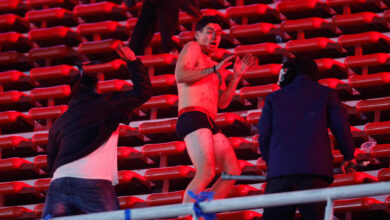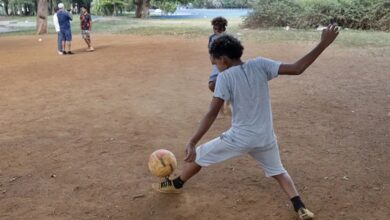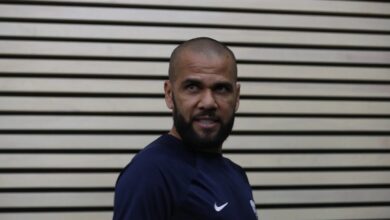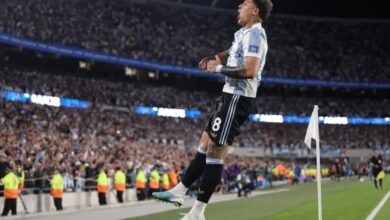Valdano Advocates for South American Soccer’s Uniqueness
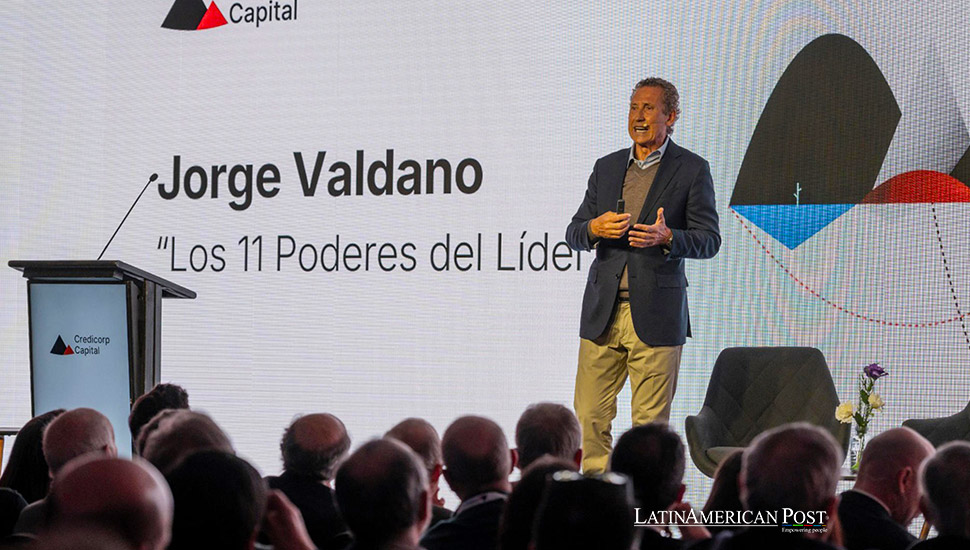
Jorge Valdano stresses the importance of preserving South American soccer’s unique qualities and warns against imitating European methods, in an exclusive interview about the recent Copa América.
Jorge Valdano, a legendary figure in soccer both as a player and a coach, has long been a vocal advocate for the preservation of South American soccer’s unique identity. In an exclusive interview with EFE, the former Real Madrid coach passionately defended the distinctiveness of the region’s soccer, arguing that its singular qualities should be protected and celebrated rather than diluted by imitating European styles.
Valdano’s reflections were sparked by the recent Copa América held in the United States and the broader context of South American teams’ performance on the global stage. He asserted that Argentina’s victory in the 2022 World Cup in Qatar was a critical reminder of the region’s strengths and the importance of staying true to its roots. “Imitating Europe will distance us from excellence,” Valdano warned, highlighting the danger of losing the very elements that make South American soccer special.
Balancing Tradition with Modernization
While Valdano acknowledges the value of integrating scientific advancements into soccer methodologies, he remains steadfast in his belief that these should not come at the cost of losing South American soccer’s identity. The 1986 World Cup champion emphasized that while there is much to learn from European soccer, particularly in terms of academic rigor and tactical discipline, it is crucial that South American teams retain their flair, creativity, and resilience—traits that have historically set them apart.
During his visit to Santiago, where he delivered a lecture for Credicorp Capital, Valdano discussed the current level of soccer and the challenges South American teams face as they prepare for the 2026 World Cup qualifiers. He noted that the integration of modern methodologies is necessary but must be carefully balanced with the preservation of the region’s traditional style of play.
Reflecting on the recently concluded Copa América and Euro Cup, Valdano observed that both tournaments saw the best teams reach the finals, with the most deserving teams ultimately claiming victory. He praised the “very high academic level” of European soccer but also pointed out the unique challenges that South American players face, such as inconsistent refereeing, poor pitch conditions, and the need to navigate the game with a mix of talent and street-smart cunning.
The Debate Over Copa América Expansion
One of the most contentious topics Valdano addressed was the idea of expanding the Copa América to include teams from North America and the Caribbean. While he acknowledged that “playing is learning,” he argued that competing at the highest level is an entirely different matter. Valdano expressed concern that such an expansion would dilute the tournament’s quality, which is traditionally characterized by intense competition among South American teams.
According to Valdano, adding teams from outside South America might benefit Concacaf by raising its competitive level, but it would simultaneously lower the standard of the Copa América. He explained that the inclusion of more teams would make the tournament less demanding and could undermine its prestige. Valdano also recalled the organizational challenges faced during the tournament held in the United States last June, where logistical issues and dissatisfaction among coaches, including Marcelo Bielsa, highlighted the difficulties of hosting such a prestigious event outside of South America.
The Road Ahead: South American Qualifiers for the 2026 World Cup
As South American teams gear up for the 2026 World Cup qualifiers, Valdano offered his thoughts on the challenges and opportunities that lie ahead. With seven spots available for the tournament, there is both relief and pressure on the teams vying for a place. “The additional two spots have given many teams some peace of mind, but the fear is still there because in football, what shouldn’t happen often does,” Valdano reflected, underscoring the unpredictability of the sport.
Valdano highlighted the current standings, pointing out that Venezuela is in fourth place while Chile is in a precarious eighth position, outside the qualifying spots. He emphasized the urgency for Chile to improve quickly, given the high stakes involved. “The reward is substantial, and the frustration of not reaching a World Cup would be even greater,” he warned, noting that the path to qualification is fraught with challenges.
Valdano also expressed hope for the process being led by Chile’s Argentine coach, Ricardo Gareca, whom he described as having a deep understanding of South American soccer. Gareca’s experience and knowledge of the region’s unique dynamics are seen as assets in navigating the qualifiers. However, Valdano acknowledged the difficulty of balancing competitiveness with the necessary transition that Chilean soccer must undergo. “It’s very challenging to be competitive while also undergoing the necessary transition that Chilean soccer must face,” he explained, highlighting the delicate balancing act that Gareca must manage.
Valdano’s Cautionary Note for Chile’s Future
Reflecting on Chile’s situation, Valdano offered a cautionary note based on the experiences of past coaches. He recalled the fate of Eduardo Berizzo, who recently paid the price for Chile’s struggles in the qualifiers. “These costs are usually borne by the coach. Berizzo paid the price not long ago; let’s hope Gareca isn’t next,” Valdano concluded, stressing the high stakes for coaches operating in the high-pressure environment of South American soccer.
Also read: Argentinean Prodigy Mastantuono Drawing Real Madrid’s Interest
Valdano’s reflections serve as a reminder of the complex dynamics at play in South American soccer. The region’s teams are caught between the desire to modernize and the need to preserve their unique identity. As the qualifiers for the 2026 World Cup approach, the decisions made by coaches, players, and administrators will be crucial in determining whether South American soccer can maintain its distinctiveness while continuing to compete at the highest level. Valdano’s call to protect the singularities of South American soccer resonates as a plea to safeguard the essence of a game that has brought joy and pride to millions across the continent.

